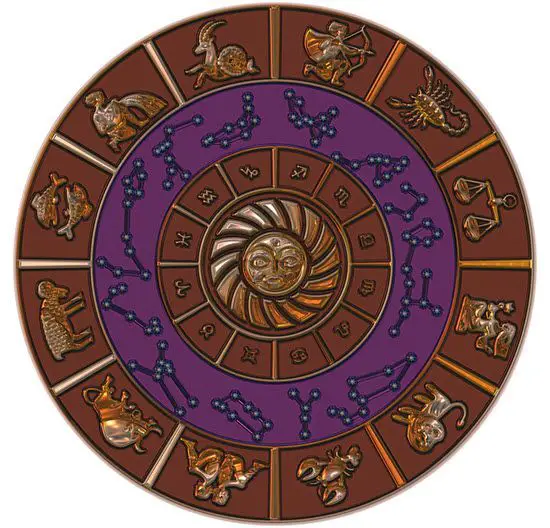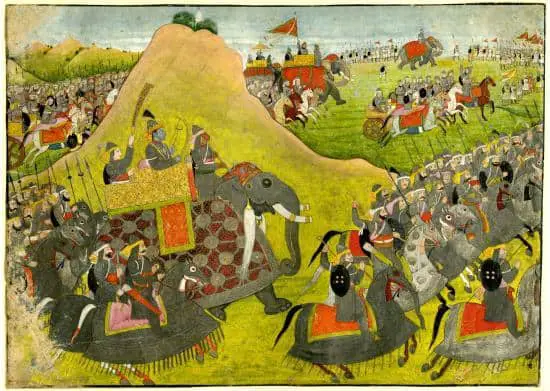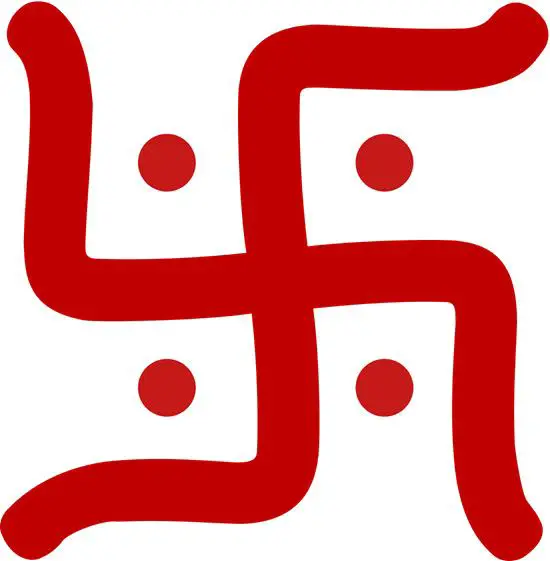This post features Swami Vivekananda Biography and Quotes. Swami Vivekananda, born on 12 January 1863 as Narendranath Datta, an Indian Hindu monk.
Swami Vivekananda is mainly known for his teachings of the Indian philosophies of Vedanta and Yoga to the Western World.
He is also recognized as a significant force in the revival of Hinduism in India. His contributions brought Hinduism to the status of a major world religion.
Swami Vivekananda popularized Indian nationalism and used it to fight against the British Empire in colonial India.

He participated at the Parliament of the World’s Religions in Chicago in 1893. He addressed the gathering with the words, “Sisters and brothers of America,” which is still popular today.
Swamiji gave hundreds of public and private lectures and classes. He disseminated Hindu philosophy’s invaluable principles in the United States, Europe, and England.
Ramakrishna Paramahamsa was the spiritual Master (Guru) of Swami Vivekananda. Swamiji founded the Ramakrishna Math and the Ramakrishna Mission in memory of his beloved Guru.
In India, Swami Vivekananda is mainly known as a patriotic saint. His birthday is celebrated in the form of National Youth Day.
Table of Contents
Swami Vivekananda Biography
Swami Vivekananda was born into an aristocratic Bengali Kayastha family of Calcutta on 12 January 1863 during the Makar Sankranti festival.
His childhood name was Narendra or Naren. He was one of nine siblings. His father, Vishwanath Datta, held an attorney position at the Calcutta High Court.
His mother’s name was Bhubaneswari Devi. She was a devout housewife with a religious temperament.
Narendra had a spiritual bent of mind from a very young age. He used to meditate before the images of Rama, Sita, Hanuman, and Lord Shiva. He had a liking for wandering ascetics and monks.
It is said that Narendra was naughty and restless as a child. His parents had difficulty controlling him.
Narendranath (Swami Vivekananda’s childhood name) was enrolled at Ishwar Chandra Vidyasagar Metropolitan Institution at eight.
In 1877, Swamiji’s family moved to Raipur. In 1879, his family returned to Calcutta.
Swamiji was the only student to attain first-division marks in the Presidency College entrance examination.
Swamiji had a scholastic aptitude in a wide range of subjects such as philosophy, religion, art, literature, history, and social science.
Swamiji also studied the Vedas, the Upanishads, the Bhagavad Gita, the Ramayana, the Mahabharata, and the Puranas.
He even studied Western philosophers. Swamiji also learned Sanskrit scriptures and Bengali literature.
He was trained in Indian Classical Music. He regularly participated in sports and did physical exercise.
Swamiji completed his Bachelor of Arts Degree in 1884 from Christian College, Calcutta.
Swami Vivekananda was known for his prodigious memory. He was called “Shrutidhara.” He possessed the ability to speed reading.
Swamiji’s initial beliefs were shaped by Brahmo concepts, which believed in a formless God. He even joined the Sadharan Brahmo Samaj in his twenties, led by Keshab Chandra Sen and Debendranath Tagore.
However, Swamiji was not satisfied with his knowledge of philosophy. He wanted to realize God. So, he questioned several eminent Hindu scholars if they had come “face to face with God,” but none of their answers satisfied him.
It was Ramakrishna who answered Swamiji’s question. He said to Swamiji, “Yes, I see Him as I see you, only in an infinitely intense sense.”
Later on, Ramakrishna became the spiritual Master of Swami Vivekananda and evolved him on his quest for God and ultimate Truth.
It happened to be a turning point in his life. Ramakrishna told Vivekananda, “Try to see the truth from all angles.”
In 1884, Vivekananda’s father’s sudden death left the family bankrupt. He tried to find work but failed. Swamiji questioned God’s existence but found solace in Ramakrishna. His visits to Dakshineswar Kali Temple increased.
Once, Vivekananda requested Ramakrishna to pray to Goddess Kali so that his family may get back their financial status. However, Ramakrishna suggested him to go to the temple himself and pray.
So, Vivekananda went to the temple thrice but failed to pray for any kind of world necessities. He ultimately asked for true knowledge and devotion from the goddess.
Finally, Vivekananda renounced everything and accepted Ramakrishna as his Guru. Ramakrishna taught him that service to men was the most effective worship of God.
In 1885, Ramakrishna was diagnosed with throat cancer. He died on 16 August 1886 in Cossipore.
After Ramakrishna’s death, Vivekananda founded the first Ramakrishna Math at Baranagar. Many disciples and monks practiced Japa and meditation at this place.
In 1888, Narendra (Swami Vivekananda) adopted the Hindu religious life of a wandering monk. He only kept a kamandalu (water pot), staff, and his two favorite books – the Bhagavad Gita and The Imitation of Christ.
He began to travel extensively throughout India. He visited many centers of learning and acquainted himself with different religious traditions and social patterns.
He developed a soft heart for the poor and resolved to uplift the nation. He lived primarily on Biksha (alms). He traveled on foot and by railways.
Finally, Narendra left Bombay for Chicago on 31 May 1893 with the name “Vivekananda,” which means the bliss of discerning wisdom.
He visited many cities in countries such as Japan, China, and Canada en route to the United States.
He reached Chicago on 30 July 1893, where he attended the Parliament of World Religions in September 1893. Vivekananda was recognized as an honor of humanity.
The Parliament of World’s Religions was opened on 11 September 1893 at the Art Institute of Chicago.
Vivekananda gave a brief speech on India and Hinduism. He began his speech with the words, “Sisters and brothers of America!”
Vivekananda was given a two-minute standing ovation from the crowd of seven thousand people at this meeting.
He emphasized that Hinduism has taught the world both tolerance and universal acceptance.
Vivekananda was called the Orange-monk from India. American newspapers called Vivekananda “the greatest figure in the parliament of religions.” He made a huge impression as an orator.
He spent almost two years lecturing in the eastern and central United States. Vivekananda also founded the Vedanta Society of New York in 1894.
He also traveled to the UK twice in 1895 and 1896. Vivekananda established many Vedanta centers in the West. He met many scholars, such as Max Muller and Paul Deussen.
In 1896, his book named Raja Yoga was published, which instantly succeeded with Western audiences.
Vivekananda won an innumerable number of followers and admirers in the US as well as Europe.
Vivekananda returned to India in January 1897. He was given an enthusiastic reception. Vivekananda gave several lecturers emphasizing social issues, which demonstrate his nationalistic fervor as well as spiritual ideology.
On 1 May 1897, Vivekananda founded the Ramakrishna Mission for social service in Calcutta. It was based on Karma Yoga.
In June 1899, Vivekananda left for the West for a second time. He was accompanied by Sister Nivedita and Swami Turiyananda.
He established Vedanta Societies in San Francisco as well as New York. He also founded a Shanti Ashram in California.
In 1900, Vivekananda went to Paris for the Congress of Religions.
Vivekananda finally returned to Calcutta on 9 December 1900. He settled at Belur Math. He also made pilgrimages to religious centers such as Bodhgaya and Varanasi.
Vivekananda’s health was declining fast. He had asthma, diabetes, and chronic insomnia.
Vivekananda attained mahasamadhi on 4 July 1902. Swamiji was cremated on the banks of the Ganges River in Belur on a sandalwood funeral pyre.
At what age Vivekananda died?
Swami Vivekananda prophesied that he should not live to be forty years old. It came true as Vivekananda passed away at the age of thirty-nine years, five months, and twenty-four days on 4 July 1902.
He died at 9:20 pm while meditating.
On the day of his death, Vivekananda taught Shukla-Yajur-Veda, Sanskrit Grammar, and Yoga Philosophy to disciples. He also planned Vedic College in the Ramakrishna Math.
There was a ruptured blood vessel in his brain that was reported as a possible cause of death.
It is believed that rupture was due to his brahmarandhra (it is an opening in the crown of his head) that was being pierced when he attained the state of mahasamadhi.
Swami Vivekananda Quotes
Swami Vivekananda’s teachings are lifelong lessons for all of us. Here, we put down some of the very popular quotes of Swami Vivekananda:
Quote #1:
“Take up one idea. Make that one idea your life; dream of it; think of it; live on that idea. Let the brain, the body, muscles, nerves, every part of your body be full of that idea and just leave every other idea alone. This is the way to success, and this is the way great spiritual giants are produced.”
Quote #2:
“In a conflict between the heart and the brain, follow your heart.”
Quote #3:
“You have to grow from the inside out. None can teach you; none can make you spiritual. There is no other teacher but your own soul.”
Quote #4:
“The great secret of true success, of true happiness, is this: the man or woman who asks for no return, the perfectly unselfish person, is the most successful.”
Quote #5:
“The greatest religion is to be true to your own nature. Have faith in yourselves.”
Quote #6:
“Strength is Life; Weakness is Death.”
Quote #7:
“All power is within you; you can do anything and everything. Believe in that, do not believe that you are weak; do not believe that you are half-crazy lunatics, as most of us do nowadays. You can do anything and everything, without even the guidance of anyone. Stand up and express the divinity within you.”
Quote #8:
“The greatest sin is to think yourself weak.”
Quote #9:
“Talk to yourself once in a day; otherwise, you may miss meeting an intelligent person in this world.”
Quote #10:
“Be the servant while leading. Be unselfish. Have infinite patience, and success is yours.”
Quote #11:
“Anything that makes weak – physically, intellectually, and spiritually, reject it as poison.”
Quote #12:
“We are what our thoughts have made us; so take care about what you think. Words are secondary. Thoughts live; they travel far.”
Quote #13:
“Anything that makes weak – physically, intellectually, and spiritually, reject it as poison.”
Quote #14:
“Be not afraid of anything. You will do Marvelous work. It is Fearlessness that brings Heaven even in a moment.”
Quote #15:
“Arise, awake, and stop not till the goal is reached.”
Quote #16:
“You cannot believe in God until you believe in yourself.”
Quote #17:
“Neither seek nor avoid, take what comes.”
Quote #18:
“Feel nothing, know nothing, do nothing, have nothing, give up all to God, and say utterly, ‘Thy will be done.’ We only dream of this bondage. Wake up and let it go.”
Quote #19:
“Do one thing at a Time, and while doing it, put your whole Soul into it to the exclusion of all else.”
Quote #20:
“We are responsible for what we are, and whatever we wish ourselves to be, we have the power to make ourselves. If what we are now has been the result of our own past actions, it certainly follows that whatever we wish to be in the future can be produced by our present actions; so we have to know how to act.”
Quote #21:
“Whatever you think that you will be.
If you think yourself weak, weak you will be;
If you think of yourself as strong, you will be”
Swami Vivekananda is one of the greatest spiritual masters that India has ever seen. His valuable teachings are still relevant in this modern world.
Swami Vivekananda Books
Here, we have listed some of the very popular Swami Vivekananda Books that you may be interested in reading.
Let’s have a look at them:
- The Complete Book of Yoga: Karma Yoga, Bhakti Yoga, Raja Yoga, Jnana Yoga
- Patanjali’s Yoga Sutras
- Reflections: Swami Vivekananda
- Swami Vivekananda: A Biography
- Meditation and Its Methods
- Raja Yoga: Conquering the Internal Nature
- Karma Yoga
- Practical Vedanta
- The Vedanta Philosophy
- From Colombo to Almora
- Bhagavad Gita as Viewed by Swami Vivekananda
- Jnana Yoga
- Inspired Talks
- Karma Yoga and Bhakti Yoga
- The Complete Works of Swami Vivekananda
- In Search of God and other Poems
- Letters of Swami Vivekananda
- The Master as I saw Him by Sister Nivedita
- Talks with Swami Vivekananda: It features profound spiritual dialogues of Swami Vivekananda, as recorded by his disciples
- My Master by Swami Vivekananda
Most of these books are available on Amazon. You can also shop at Ramakrishna.org
We have now reached the end of this post, which featured Swami Vivekananda Biography and Quotes.
We hope that you would have found the post beneficial.




